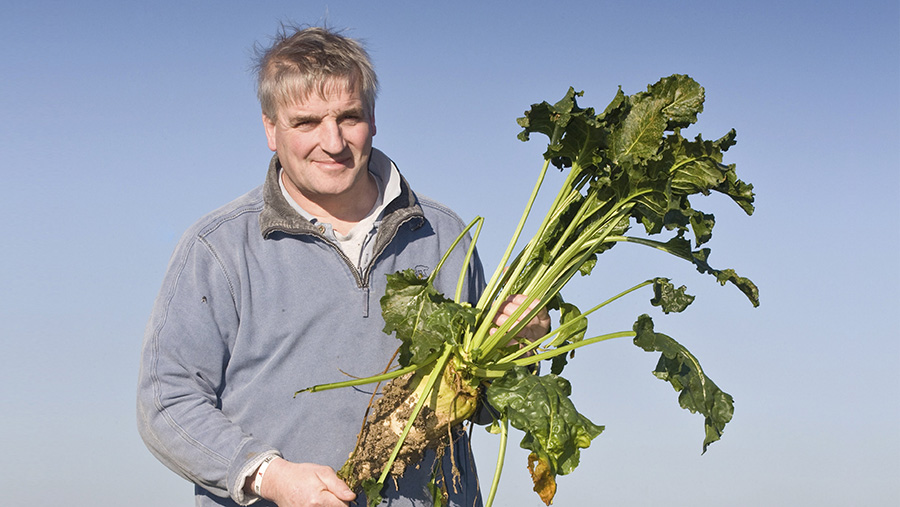Farmer Focus: Sugar beet was the saving grace of 2017
 Robert Law ©Tim Scrivener
Robert Law ©Tim Scrivener As I went about feeding and checking round the sheep on the morning of 1 January I had a feeling of relief that 2017 was over.
Farming-wise it was very disappointing. Weather as always was the controlling factor.
A very dry back end in 2016 impacted heavily on our sheep enterprise leading to a shortage of fodder and having to take keep where we could find it.
See also: Why 2017 was a bad cereals lodging year – and how to avoid it in future
A dry period from March to May was another blow on our chalk soils in what is already a very dry corner of England.
The above average rainfall that followed from July through to early October led to a very drawn-out harvest with associated quality issues.
With all our combinable crops being grown for seed and on other premium contracts it has proven quite a challenge getting these crops marketed and delivered.
I can’t remember filling so many sample bags as I have done since harvest, as well as taking numerous moisture tests. Thank goodness I still have a bin store so that blending can be more easily carried out.
Growing only soft wheats in a year with a damp extended harvest has presented sprouting problems.
Variety choice has been a critical factor here with Istabraq causing us the least problems while Zulu, which produced excellent results in 2015 and 2016, seemed to be the most prone to sprouting.
A less stressful business
Other trying factors in 2017 have been the industry wide problem of sourcing suitable staff and also a series of machinery failures during the harvest and busy autumn period.
The ‘high’ point of the year has been the sugar beet crop although it was an area of great concern during the dry April and May period.
This has been the redeeming crop for us and many others on the chalks of East Anglia.
Loading out 100 loads for the Bury factory over the last two days has been an easier and less stressful business than getting five loads of wheat delivered into a local mill.
It was said at the EU referendum that 58% of farmers voted for out and one of their main reasons was that they wanted less rules and regulations, interestingly a recent poll carried out amongst farmers produced the same result.
This was despite a growing realisation that there isn’t going to be a ‘bonfire of red tape’ for farmers and the only thing we are likely to see being reduced is the level of payments to farming as we learn to compete with other draws on the public purse.
The one thing I would like to see a reduction of during 2018 is negativity, something which is infecting farming and beginning to emanate from commentators and industry leaders.
Robert Law farms 1,700ha on the Hertfordshire, Cambridgeshire and Essex borders growing cereals, mustard, a range of forage crops for seed, sugar beet, up to 200ha of catchcrop stubble turnips and 300ha of grass supporting a flock of 2,500 ewes. All land farmed is in environmental stewardship schemes. He also manages 500ha of sandland in Nottinghamshire.

